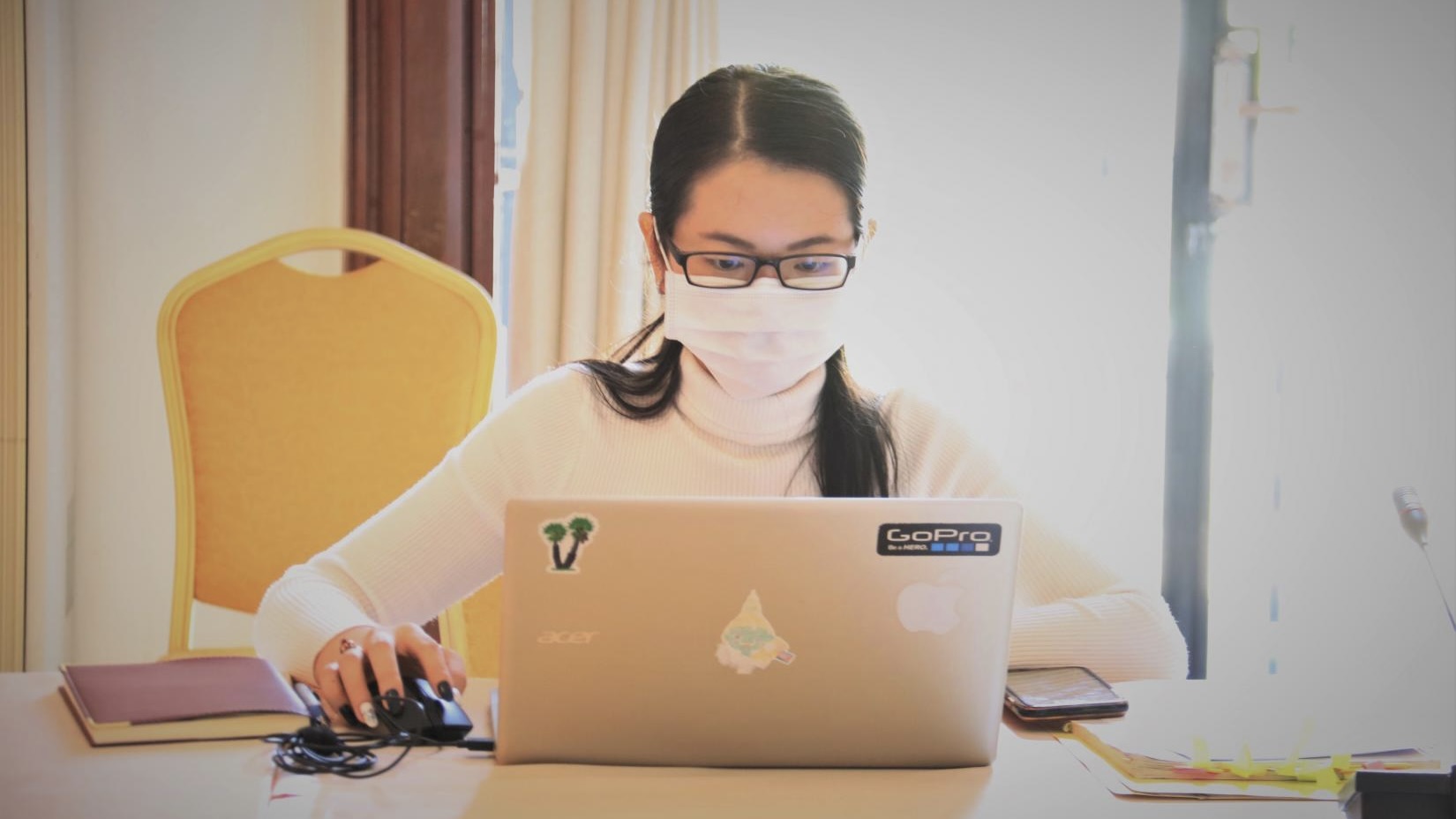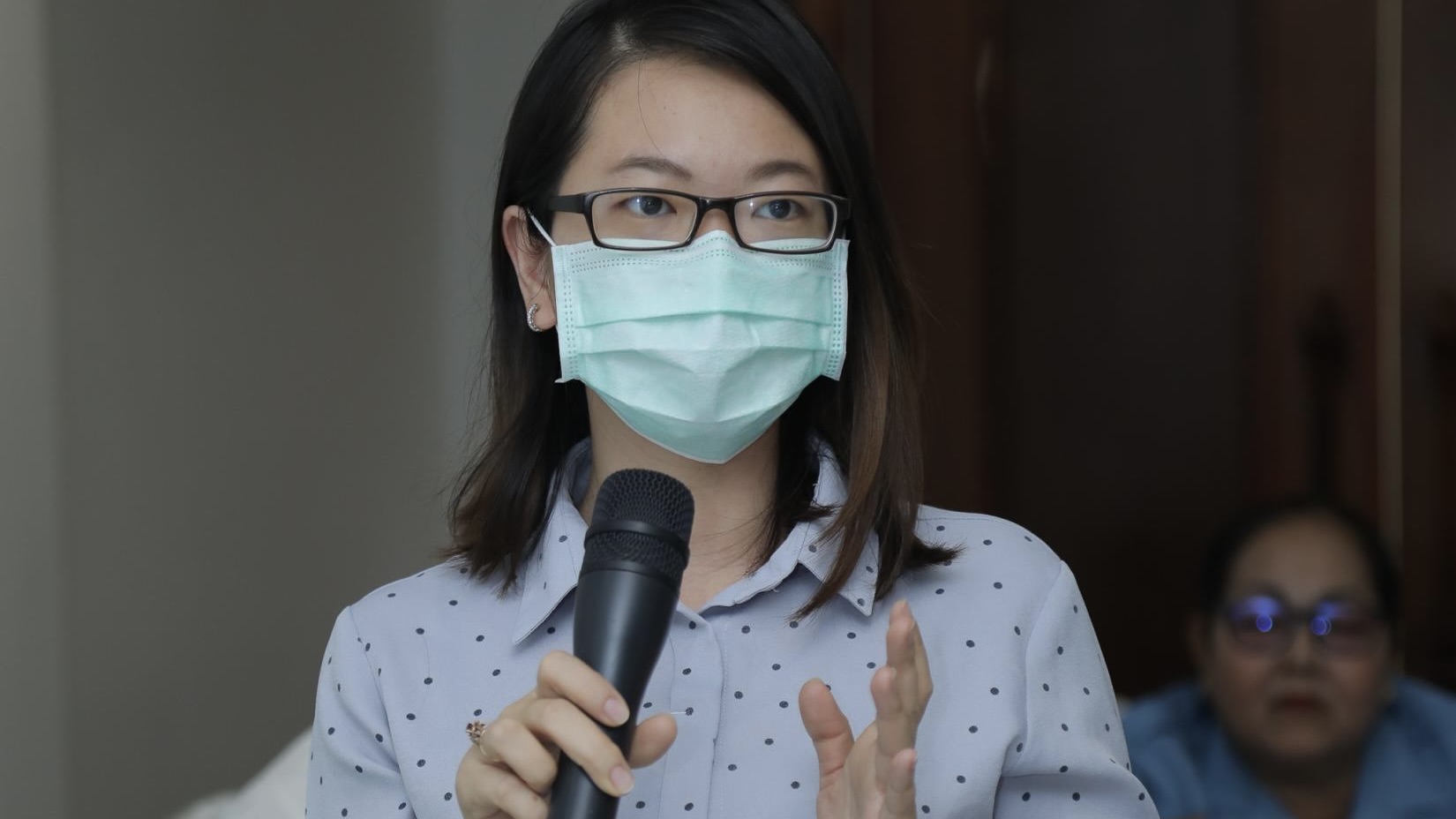

Industrial development: empowering women in Cambodia
30 September 2021 Pidor Chhay

By Pidor Chhay, National Project Coordinator, UNIDO Country Office, Cambodia
"I want to tell other women, be confident in yourself, believe in what you do, persevere and speak up, speak up and speak up. Not only men but also women, like my case, are able to influence the process and redirect the orientation of the industrial policy that can potentially steer the development of Cambodia to a more prosperous future.” - Kesorphearom Chea, Officer of the Private Investment Strategy Analysis Department, Council for the Development of Cambodia (CDC).
Chea is an energetic woman with promising prospects, who has actively engaged in the United Nations Industrial Development Organization (UNIDO) capacity-building programme since May 2019. She is a coordinator and team leader of a task force, responsible for collecting and consolidating the report template format and evaluating the implementation of policy measures. She is also a member of a recommendation task force for improved implementation of Industrial Development Policy (IDP) measures.
Before working for the Council for the Development of Cambodia (CDC), Chea was a facilitator for the project, “The Courageous Turtle” which aimed to bridge the past with the present. She was hoping to help connect the old generation with the new generation and extend the impact of the project to the whole of Cambodian society from the grassroots level.
In 2017, Chea applied to work at the CDC, which was tasked by the Royal Government of Cambodia (RGC) with overseeing the implementation plans of the IDP and address any challenges in the industrial sector.
“I was first tasked to prepare, consolidate and analyze the first report of the progress of the IDP implementation with a team of young and dynamic people. When UNIDO Cambodia provided technical support based on the RGC’s request to CDC in developing the monitoring and evaluation (M&E) system and conducting a mid-term review of the IDP, seeing my potential, my supervisor assigned me to present the M&E system set up under IDP to UNIDO experts. In addition, I was assigned as CDC communication focal point, and thus have been handling communications with UNIDO Cambodia ever since.”
In 2020, the M&E system for IDP was remarkably and successfully developed by the IDP secretariat including Chea, with intensive support from UNIDO.
“Being assigned as a team leader of one of the main task forces in preparing the IDP mid-term review, I feel honoured and empowered. I am grateful to be supervised by good leaders who do not overlook women’s potential and talents. It shows that empowering women indeed requires contributions from everyone, particularly our male counterparts and stakeholders.”
“This UNIDO programme has taught me a lot. I went from being M&E illiterate to an M&E advocate. Since the programme, I have come to believe that all policies need an M&E system in place. Even simple tasks in our everyday lives need M&E one way or another to see whether the plan that we have put forth is going to plan or not, though not necessarily as intense as the system that I have been working on.”
Asked what makes her succeed in her task, Chea replied: "Perseverance and teamwork are key principles that have always guided me through my professional career.....The spirit of teamwork will allow me and my team to go fast and far together.”

However, behind Chea's good progress in her assigned tasks toward the quality mid-term review report of the IDP, lay key challenges. Some barriers have obstructed her work at the policy level.
“I’ve experienced a few stereotype issues: one) women are often viewed as unwomanly or bossy when they speak up about ideas or assert themselves at any point. That is why women prefer keeping quiet in meetings or discussions rather than speaking up because they may feel like their ideas may be judged or misinterpreted; and two) administrative responsibilities are particularly tasked to women, as it is presumed to be a woman’s job.”
She believes these perceptions must be tackled in a timely manner because they will potentially kill the confidence of women, especially young women who have just started their careers in this area.
Due to the COVID-19 pandemic, the routine is being replaced by virtual communications and countless virtual meetings which have proved to be difficult for everyone. “It was difficult for me at first, as working from home and virtual meetings could feature distractions and lead to low productivity. However, I’ve adapted to the new normal and continue to be efficient and result-oriented.”
Hence, Chea strongly encourages men and women to engage in policy-level tasks.
"I personally believe that everyone - both men and women deserve a chance to showcase their abilities. However, the painful reality is that women must make twice or thrice the efforts of men."
“I think the government and donors should further strengthen the education and health system in Cambodia to ensure that everyone can equally receive the benefits.”
“At the institutional level, it is crucial to raise awareness by creating training or workshops on gender equality at the workplace to inform those in positions of power to effect policy changes and reduce gender stereotypes.”
(Originally published by United Nations Cambodia: Empowering Women in Industrial Development in Cambodia: Phearom’s Journey)
Read about UNIDO's Programme for Country Partnership Cambodia
UNIDO and Royal Government of Cambodia sign Programme for Country Partnership
See also: Policy Assessment for the Economic Empowerment of Women in Green Industry: Cambodia